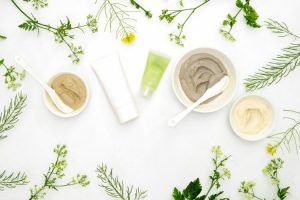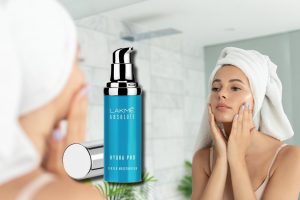
Introduction:
Navigating the world of skincare can be overwhelming, especially when it comes to understanding the myriad of ingredients listed on product labels. To make informed decisions about the products we use on our skin, it’s essential to decode these labels and understand the purpose and effects of common skincare ingredients. In this article, we will take an in-depth look at common skincare ingredients, shedding light on their benefits, potential concerns, and recommended usage. By unraveling the mystery behind these ingredients, we aim to empower you to make educated choices for your skincare routine.
1. Powerful Moisturizers: Hyaluronic Acid and Glycerin
Hydration is a fundamental aspect of skincare, and two powerful moisturizing ingredients are hyaluronic acid and glycerin. Let’s explore their properties and benefits:
a. Hyaluronic Acid: Hyaluronic acid is a humectant that attracts and retains moisture, helping to plump and hydrate the skin. It can hold up to 1,000 times its weight in water, making it an excellent ingredient for maintaining skin hydration and reducing the appearance of fine lines and wrinkles.
b. Glycerin: Glycerin is another effective humectant that helps to attract and retain moisture in the skin. It acts as a barrier, preventing water loss and keeping the skin hydrated and smooth. Glycerin is suitable for all skin types and is often found in moisturizers, serums, and other skincare products.
2. Antioxidant Powerhouses: Vitamin C and Green Tea Extract
Antioxidants are essential for protecting the skin from environmental damage and maintaining a youthful appearance. Let’s explore two popular antioxidant ingredients:
a. Vitamin C: Vitamin C is a potent antioxidant that brightens the skin, evens out skin tone, and promotes collagen production. It helps to reduce the appearance of dark spots and hyperpigmentation, giving the skin a radiant and youthful glow. Vitamin C can be found in serums, creams, and other skincare formulations.
b. Green Tea Extract: Green tea extract is rich in antioxidants, including catechins, which help to protect the skin from free radicals and reduce inflammation. It has soothing properties and can help calm sensitive or irritated skin. Green tea extract is often found in toners, moisturizers, and masks.
3. Exfoliating and Renewing Ingredients: AHAs and Retinoids
Exfoliation and cell turnover are vital for maintaining a healthy complexion. Let’s delve into two common ingredients known for their exfoliating and renewing properties:
a. Alpha Hydroxy Acids (AHAs): AHAs, such as glycolic acid and lactic acid, exfoliate the skin by dissolving dead skin cells, revealing a brighter and smoother complexion. They can improve skin texture, reduce the appearance of fine lines, and promote a more even skin tone. AHAs are often found in peels, serums, and exfoliating treatments.
b. Retinoids: Retinoids, derivatives of Vitamin A, are renowned for their ability to promote cell turnover and stimulate collagen production. They can improve the appearance of fine lines, wrinkles, and uneven skin tone. Retinoids are commonly found in anti-aging creams and serums, but it’s important to start with a low concentration and gradually increase usage to avoid irritation.
Conclusion: Empowering Skincare Ingredient Knowledge
Understanding the ingredients in skincare products is crucial for making informed choices about your skincare routine. By decoding labels and familiarizing yourself with common ingredients, you can better assess the benefits and potential concerns of each product. Remember, everyone’s skin is unique, and what works for one person may not work for another. It’s essential to listen to your skin and adjust your routine accordingly.
As actress and beauty entrepreneur, Gwyneth Paltrow, once said, “The more you know about the ingredients in your beauty products, the healthier you can be.” Armed with knowledge about skincare ingredients, you can confidently select products that cater to your skin’s specific needs and contribute to a healthy and radiant complexion.
Always consult with a skincare professional or dermatologist if you have specific concerns or sensitivities. With a deeper understanding of skincare ingredients, you can embark on a skincare journey that is effective, safe, and tailored to your unique needs.















